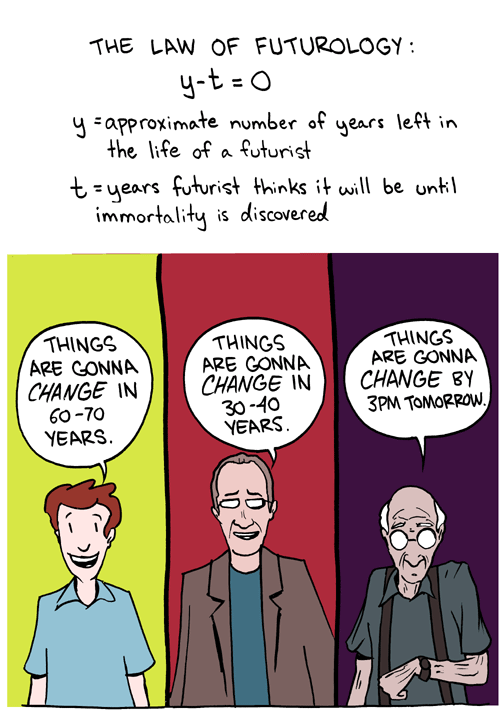I am curious how people in this forum judge the chances for people of various age to actually reach actuarial escape velocity. For those of you unfamiliar with the concept, it means:
" Life expectancy increases slightly every year as treatment strategies and technologies improve. At present, more than one year of research is required for each additional year of expected life. Actuarial escape velocity occurs when this ratio reverses, so that life expectancy increases faster than one year per one year of research, as long as that rate of advance is sustainable. "
But be aware, that we are talking about practical availability of treatments! For example today's headlines about research progress in cancer treatments might be benefical for young people later in their life, but do not necessarily help today's cancer victims in their 70s or 80s. Furhtermore I'd like to focus on technologies that are state of the art in their time and not purely experimental treatments only accessible by a few wealthy individuals.
In addition, as this is a life extension forum, let us just consider people with a generally healthy life style; e.g. today's average 50 or 60 years old who do not smoke, do not drink excessivly, have a "good" diet and are not severly overweight.















































